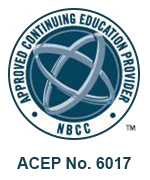Weekend Conference Sept 30-Oct 2, 2022 will be held online on our secure Zoom platform. Open to any mental health professional or mental health professional-in-training. Keynote speaker, Usha Tummala-Narra, PhD.
limited scholarships monies are available, apply now
Program Date(s):
September 30, 2022 - October 2, 2022Weekend Overview
This conference will explore the intersection of sociocultural context and the psyche from a psychoanalytic perspective. Dr. Tummala-Narra will focus on sociocultural traumas, such as racism and xenophobia, and their impact on intrapsychic and interpersonal life, and the therapeutic relationship. She will describe the influence of colonization on contemporary developmental theory and propose a culturally informed, decolonizing approach to psychoanalytic psychotherapy. Additionally, she will explore the problem of separating the psyche and the social with regard to personality and how personality and social context, particularly manifested in discrimination and stereotyping, intersect and interact with each other. Case illustrations will serve to translate culturally informed psychoanalytic theory to practice.
The course will use lecture, large group discussion, small group/GAM group discussion, case presentation and discussion and informal discussion to achieve the course objectives.
General weekend schedule
Friday 9:40am – 5:10 pm US ET
Saturday 9:45am – 6:15pm US ET
Sunday 10:00am – 2:00pm US ET
Detailed schedules, reading lists, and educational objectives will be provided to registered participants.
Usha Tummala-Narra Ph.D.

Usha Tummala-Narra, Ph.D. is a clinical psychologist and the Director of Community-Based Education at the Albert and Jessie Danielsen Institute and Research Professor in the Department of Psychological and Brain Sciences at Boston University. Her research and scholarship focus on immigration, trauma, race, and culturally-informed psychoanalytic psychotherapy. Her publications include over 90 peer-reviewed articles and chapters in books. She is also in Independent Practice, and works primarily with survivors of trauma from diverse sociocultural backgrounds.
Dr. Tummala-Narra serves on the Holmes Commission on Racial Equality of the American Psychoanalytic Association and on the Board of Directors of the American Psychological Association (APA) Division 45 (Society for Psychological Study of Culture, Ethnicity, and Race). She has served as a Member-at-Large on the Board of Directors in APA Division 39 (Society for Psychoanalysis and Psychoanalytic Psychology), the chair of the APA Division 39 Multicultural Concerns Committee, and as a member of the APA Committee on Ethnic Minority Affairs, the APA Presidential Task Force on Immigration, and the APA Task Force on Revising the Multicultural Guidelines. She is a Fellow of the American Psychological Association, and of APA Division 39 and Division 45.
Dr. Tummala-Narra is an Associate Editor of the Asian American Journal of Psychology, Associate Editor of Psychoanalytic Dialogues, and Senior Psychotherapy Editor of the Journal of Humanistic Psychology. She serves on the editorial boards of the APA journals, American Psychologist, Psychoanalytic Psychology, Cultural Diversity and Ethnic Minority Psychology, and Psychology of Men and Masculinities. She is the author of Psychoanalytic Theory and Cultural Competence in Psychotherapy (2016), and editor of Trauma and Racial Minority Immigrants: Turmoil, Uncertainty, and Resistance (2021), both published by the American Psychological Association Books.
Schedule of Presentations
Educational Objectives
After attending this conference, participants will be able to:
Friday September 30th
Racism and the therapeutic relationship: A psychoanalytic perspective
- Describe the impact of racism on the intrapsychic and interpersonal life of clients and therapists.
- Identify 2 ways that the therapeutic relationship can mirror racial dynamics and inequities in broader society.
GAM Group
- Utilize experiences shared in the small group discussion to describe at least 2 ways that racism can impact the intrapsychic and interpersonal life of clients and therapists.
- Utilize experiences shared in the small group discussion to identify at least 2 ways that the therapeutic relationship can mirror racial dynamics and inequities in broader society.
Case Presentation
- Describe at least 2 ways that racism and sociocultural trauma impact clients on interpersonal and/or intrapsychic levels.
- Identify at least 2 ways that issues of race and culture impact the therapeutic relationship
GAM Group
- Utilize the case material and experiences shared in the small group discussion to describe at least 2 ways that sociocultural experiences intersect with the interpersonal and intrapsychic lives of clients and therapists.
- Utilize the case material and experiences shared in the small group discussion to identify at least 2 ways that racism impacts the therapeutic relationship.
Saturday October 1st
Moving toward decolonizing psychoanalytic theory and practice
- Describe how colonization and sociocultural trauma shape conceptualizations of human development and personality.
- Explain 3 reasons why attention to sociocultural context is critical for moving toward decolonized approaches to psychoanalytic psychotherapy
GAM Group
- Utilize experiences shared in the small group discussion to describe at least 2 ways that colonization and sociocultural trauma shape conceptualizations of human development and personality.
- Explain at least 2 ways that attention to sociocultural context is critical for moving toward decolonized approaches to psychoanalytic psychotherapy.
Approaching cultural competence from a psychoanalytic perspective
- Identify 2 ways that psychoanalytic theory informs and deepens an understanding of sociocultural context in psychotherapy.
- Describe how experiences of privilege and oppression contribute to complex and sometimes contradictory cultural identifications, and challenging dynamics within the therapeutic relationship.
GAM Group
- Utilize experiences shared in the small group discussion to identify 2 ways that psychoanalytic theory informs and deepens an understanding of sociocultural context in psychotherapy.
- Describe at least 2 ways that privilege and oppression, in the therapist’s and in the client’s life, contribute to cultural identifications and challenging dynamics within the therapeutic relationship.
Plenary
- Apply at least one concept regarding racism and the therapeutic relationship, as presented by Tummala-Narra, to a clinical or organizational situation.
- Give one example to illustrate the ways that Tummala-Narra’s work on decolonizing psychoanalytic theory and practice applies to the organizational and group process of the weekend.
Sunday October 2nd
Is this a cultural thing?: Personality, culture, and context in the therapeutic encounter
- Describe how personality can shape how one experiences one’s sociocultural context.
- State 2 ways that the therapist’s perceptions of the client’s personality may be influenced by the therapist’s own socialization and prior assumptions.
GAM Group
- List and describe at least 2 ways that personality can shape how one experiences sociocultural context.
- Utilize experiences shared in the small group discussion to identify at least 2 ways that the therapist’s implicit biases may influence her/his perceptions of the client’s personality.
Closing Dialogue
- Give 3 examples to illustrate the concepts of intersections between sociocultural context and the psyche, the impact of racism and xenophobia on intrapsychic and interpersonal life and the therapeutic relationship, and the decolonization of psychoanalytic theory and practice.
- Describe the integration of cultural competence within the framework of psychoanalytic theory and practice.
Registration
Registration options:
- Full Conference:
- $497 up to 21 days in advance; $517 thereafter
- *Full members: $359
- *Associate members: $410
- Full time students: $150
- Saturday One Day (morning and afternoon): $150
- Saturday Morning only: $45
*Login to the website with your member information to access your discounted registration rate
Tuition and Fees
See costs above
Limited scholarship funds are available for this training: https://theipi.org/scholarships/
Continuing Education Credit Hours
Weekend Conference:
14.5 CE/CME credits
Saturday One Day:
6 CE/CME credits
Saturday Morning only:
2.5 CE/CME credits
Program Chairs
Andi Pilecki Eliza-Christie MS, LPC
Andi Pilecki Eliza-Christie is a licensed professional counselor and psychoanalyst in Pittsburgh, Pennsylvania, where she works primarily with LGBTQ individuals and provides supervision and consultation. She is a faculty member of IPI and IIPT, and chair of IPI’s Diversity Committee. She is a consultant with IPI’s adult psychodynamic psychotherapy program in China. Andi has authored chapters which center LGBTQ experiences through a psychoanalytic lens and, most recently, an article entitled “Inside Out and Outside In: Exploring the interplay between social and psychic structures in the pandemic era” published in the journal, Couple and Family Psychoanalysis.
Colleen Sandor, PhD
Colleen Sandor is a psychologist and psychoanalyst practicing in Salt Lake City Utah. She taught for 19 years at Westminster College where she co-founded the Master’s in Mental Health Counseling program and chaired the program for 8 years. She is a faculty member of IPI and IIPT and former chair of IPI Salt Lake and former co-chair of IIPT. She currently teaches and supervises through IPI and IIPT and is a consultant with IPI’s adult psychodynamic psychotherapy program in China. She has authored several book chapters on group supervision and LGBTQ couples and parenting. Colleen’s practice areas include couples, substance abuse and LGBTQ individuals
Should you have any questions about the program or the application process, please feel free to contact:
IPI Administrative team - contactus@theipi.org
Membership Benefits
Become a member of IPI at the “Associate Member PLUS”, or “Full Member PLUS” level and you will receive an IPI Zoom Pro account as one of your member benefits. Associate and Full Members also receive discounted registration fees for most of IPI’s events, a subscription to PEP Web, the online psychoanalytic library, and other benefits depending on membership level.
HIPAA compliant Zoom video accounts are provided for all IPI Associate Member Plus and Full Member Plus memberships. IPI has a HIPAA Business Associate Agreement with Zoom, which provides a HIPAA compliant platform for our accounts. HIPPA compliance is strongly recommended for all internet-mediated clinical work and clinical teaching. The “PLUS” add-on to the IPI membership gives the user the ability to host online meetings with multiple people at the same time. [Current members can upgrade to the “Plus” account and only pay the difference in price from your current membership level.]
Click for IPI Membership and Zoom Account information
Continuing Education Information
This activity has been planned and implemented in accordance with the accreditation requirements and policies of the Accreditation Council for Continuing Medical Education (ACCME) through the joint provider ship of American Psychoanalytic Association and the International Psychotherapy Institute. The American Psychoanalytic Association is accredited by the ACCME to provide continuing medical education for physicians.
The American Psychoanalytic Association designates this Live Activity for a maximum of 14.5 AMA PRA Category 1 Credit(s)™. Physicians should claim only the credit commensurate with the extent of their participation in the activity.
IMPORTANT DISCLOSURE INFORMATION FOR ALL LEARNERS: None of the planners and presenters for this educational activity have relevant financial relationship(s)* to disclose with ineligible companies* whose primary business is producing, marketing, selling, re-selling, or distributing healthcare products used by or on patients.
*Financial relationships are relevant if the educational content an individual can control is related to the business lines or products of the ineligible company. -Updated July 2021-
The International Psychotherapy Institute, IPI, is approved by The American Psychological Association to sponsor continuing education for psychologists. IPI maintains responsibility for the program and its content. The International Psychotherapy Institute has been approved by NBCC as an Approved Continuing Education Provider, ACEP No. 6017. Programs that do not qualify for NBCC credit are clearly identified. The International Psychotherapy Institute is responsible for all aspects of the programs. The International Psychotherapy Institute is an approved sponsor of the Maryland Board of Social Work Examiners for continuing education credits for licensed social workers in Maryland. The International Psychotherapy Institute is recognized by the New York State Education Department’s State Board for Social Work as an approved provider of continuing education for licensed social workers #SW-0299.
Participants are responsible for verifying that IPI CE credit is accepted by the licensing boards in their own states. Please note: At this time we are aware that CE credit for IPI events will not be accepted by the New Jersey Board of Social Work.



